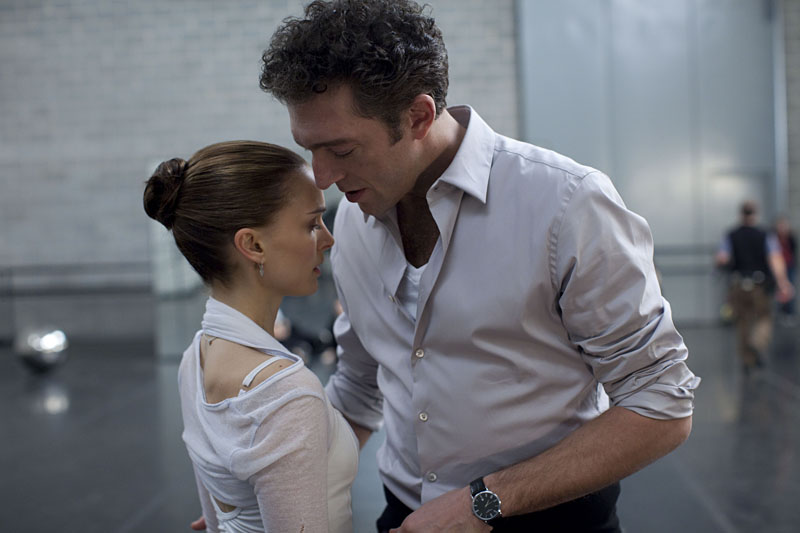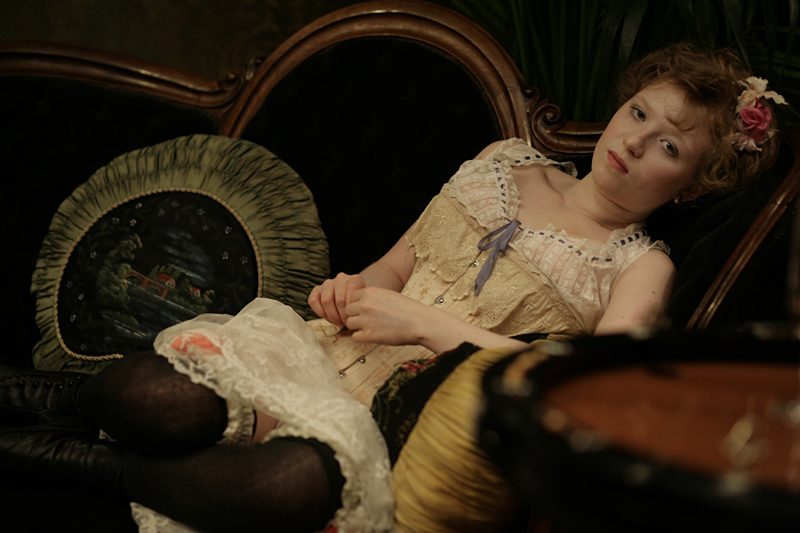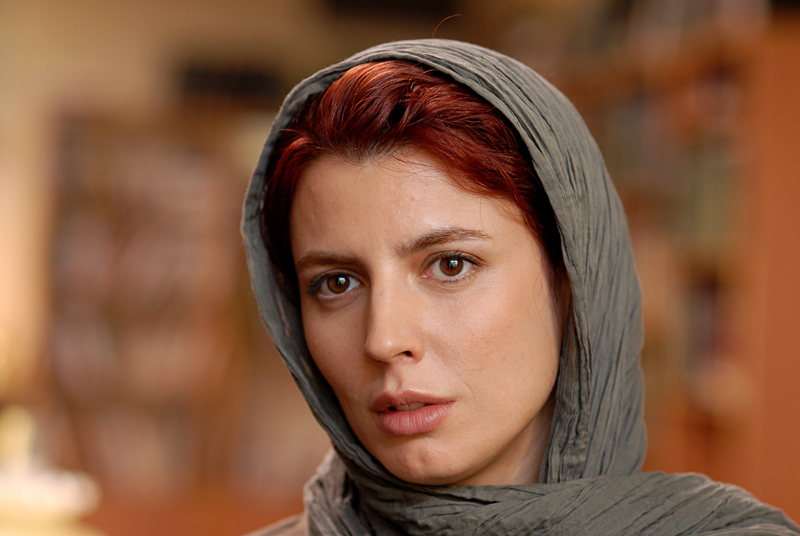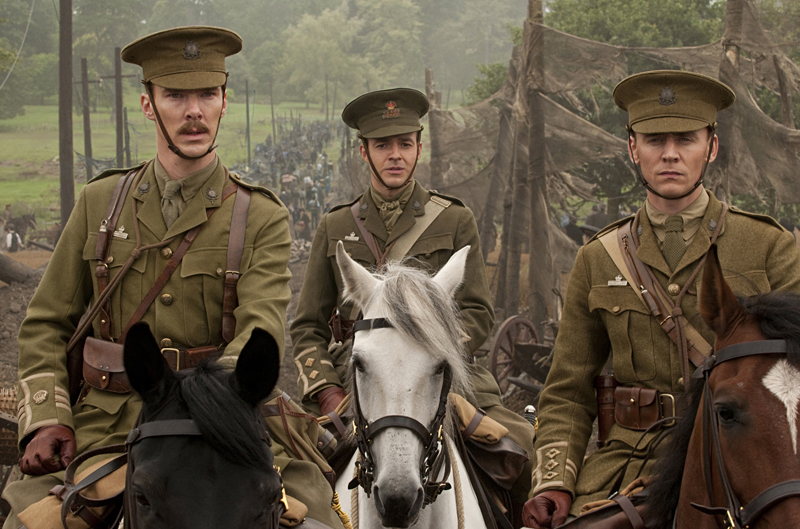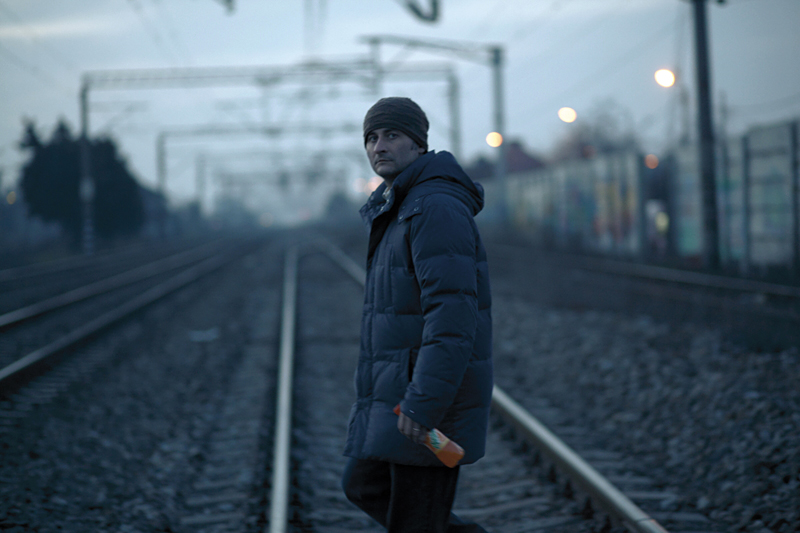A near-irresistible exercise in bravura absurdity, Darren Aronofsky’s Black Swan deserves to become a minor classic of heterosexual camp—at the very least, it’s the most risible and riotous backstage movie since Showgirls.
Tchaikovsky’s Swan Lake has had a spooky quality at least since Tod Browning appropriated a few bars of it to introduce his 1930 Dracula; Aronofsky takes that creep factor all the way to the moon. Not body but ballet horror, Black Swan is a Red Shoes/Repulsion/Carrie mashup, slathered with Dario Argento cheese. At the same time, the movie is recognizably Aronofskyian in its strenuous, sensationalizing goofiness. This epic actualization myth is a distaff version of The Wrestler, equally saturated in gore-soaked, self-mutilating histrionics.
Like The Wrestler, Black Swan is an acting vehicle—it exists to document a highly physical, totally immersive performance. Rather than fueling a geezerly comeback, however, the movie is propelled by Natalie Portman’s game determination and near-excruciating anxiety as Nina, a dogged, delusional, mildly masochistic, possibly virginal, and severely repressed little ballerina plucked from the ensemble to dance the Swan Queen and, as customary, the Queen’s evil twin in a new vision of Swan Lake concocted by the sleaziest ballet master ever to slime Lincoln Center (Vincent Cassel).
Frequently heard to whimper that she just wants to be “perfect,” Nina is one tense chick. But, really, who could blame her? Projecting her shadow all over the Upper West Side, the tremulous child is stalked and brutalized onstage and off, as well as in her dreams; she’s taunted by trolls and hobgoblins as she scurries home to the apartment-cum-haunted-house, a veritable nursery for Rosemary’s baby, that she shares, under the name “Sweet Girl,” with her scary, infantilizing mother (Barbara Hershey, hair pulled tight to pop her eyes and so witchy she should be standing in a pool of Morticia Addams goo).
Navigating the clattering subway of terror and twisted catacombs of Lincoln Center (surely built on the site of an ancient Indian burial ground and haunted by the souls of evicted tenants), Nina fights bravely for her role. She bites the ballet master’s arrogantly curled lip and draws blood to get it; he then tells Nina to practice “touching” herself at home. The sweaty sturm und drang surrounding Sweet Girl’s first orgasm is a production number in itself. (Portman long ago displayed her dark side in Closer, although, admittedly, she didn’t have to pole-dance en pointe.)
Aronofsky has a near-documentary fascination with the minutiae of physical training, but in the end Black Swan is all about penetration, blood, and psychosis. Mind games multiply en route to Nina’s inevitable swan song. The prima ballerina whom the youngster replaced (Winona Ryder) has cast a malign spell on her, and Nina is beset by a sexually confident rival (Mila Kunis) from faraway San Francisco, who tries to steal her part—or maybe her heart—at an after-work Ecstasy-crazed bacchanal. Even worse, Nina is afflicted by mysterious, running-sore stigmata, some of them self-induced. Tormented by mirrored doppelgängers and her mother’s expressionist canvases, her brain is fried well before she goes totally goth-girl for the climactic witches’ Sabbath.
Black Swan is a hoot—even more so if one identifies Aronofsky with the haughty maestro who swans through the movie like a bobblehead cadaver—and compared to the ponderous pulp mysticism of The Fountain, Aronofsky’s suffocatingly self-important attempt to out-kibitz the Kabbalah, it’s surprisingly fluid. The wall-to-wall Tchaikovsky (and “Tchaikovsky”) certainly helps, but credit the filmmaker: Despite (or perhaps thanks to) his shock cuts, zap hallucinations, off-kilter framing, moody chiaroscuro, and repetitive creepiness, Black Swan is something like a 100-minute swoon. The camera lurches, leaps, and pirouettes; in some scenes, it feels as if it’s being tossed around the stage along with Portman. Kitsch this bombastic becomes something primal.
